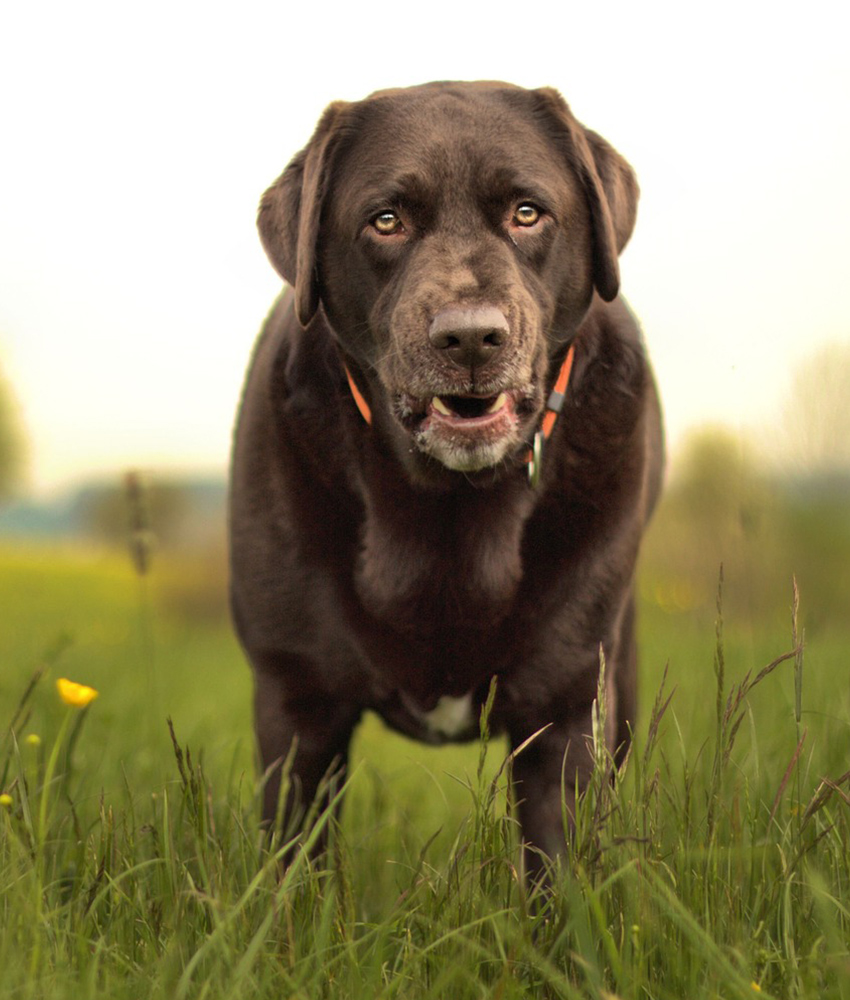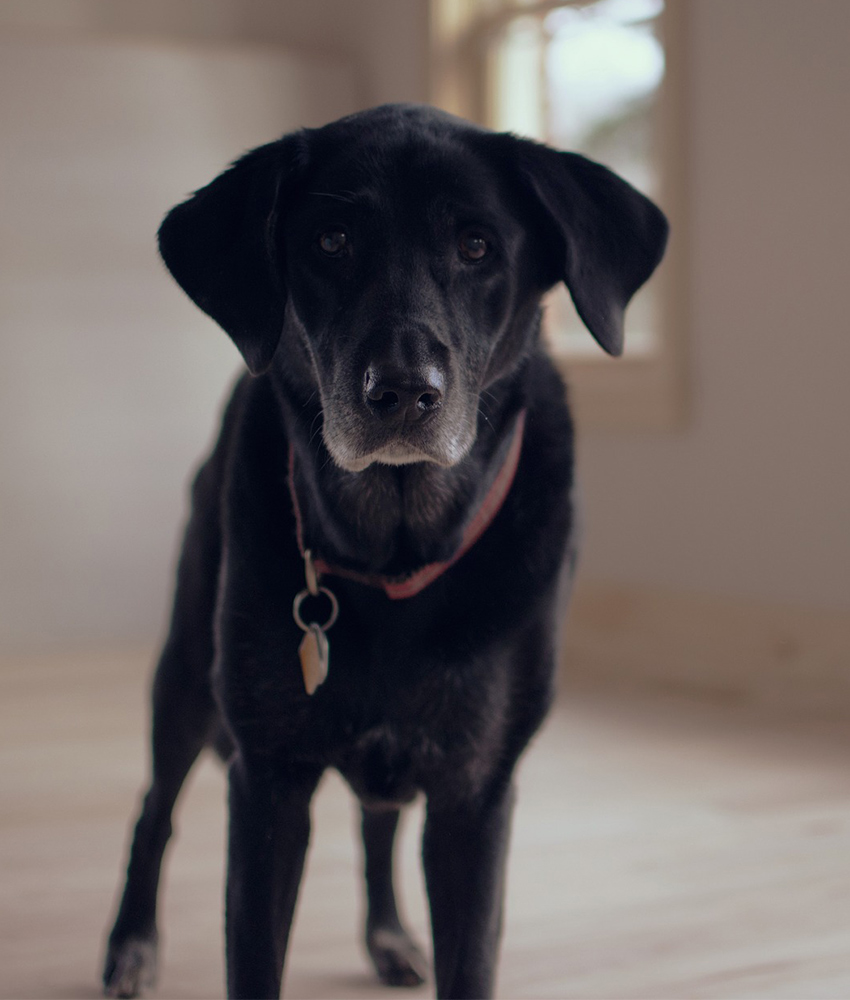As Labrador Retrievers age, they may start to slow down and develop a gray muzzle. While senior Labs can remain healthy well into their later years, they may experience issues such as hearing and vision loss, arthritis, and incontinence. This can raise concerns about their quality of life and the need for pain relief. Growing old can be tough for dogs, but there are ways to ensure your older Labrador remains happy and comfortable for as long as possible. Making adjustments to your home, vehicle, their bed, diet, and exercise routine can all make a difference. Is your Labrador entering their golden years? Learn about common health issues in older Labs, the best senior dog food and supplements, training and exercise tips for elderly dogs, and how to provide pain relief and proper care for your senior companion.
Is My Labrador Getting Old? It might come as a surprise to learn that pet food companies consider a dog to be a ‘senior’ once they reach their seventh year. Labrador Retrievers, as a breed, typically live to around ten years or a bit longer. So, it’s a bit disheartening to think that when your Labrador reaches their eighth year, they are already considered to be in the later stages of their life. However, with some extra care and attention, their senior years can be full of joy and good health. In this piece, we will explore ways in which you can help your older Labrador enjoy life and stay healthy as they age. Health Challenges for Old Labradors While some age-related changes are natural, there are often ways to manage or even improve certain health issues. Common problems for older Labradors may include: – Hearing loss – Vision problems – Incontinence – Arthritis Vision Loss in Senior Labradors Although hearing and vision problems may seem like typical signs of aging, not all of these issues are irreversible. For instance, cataracts can be surgically removed, allowing dogs to regain their sight and enjoy a new lease on life. Surprisingly, dogs tend to adapt well to vision loss as long as their environment remains consistent. However, hearing loss can pose more significant challenges when it comes to communication and management.

Dealing With Hearing Loss in Aging Labradors When you’re inside the house, you’re usually close enough to communicate with your senior Lab easily. However, things change when you head outdoors. During walks, it’s crucial that your furry friend can hear your commands or whistle for safety reasons. To tackle the inconvenience caused by hearing loss, you can train your Lab to respond to large, clear hand signals for commands. Managing Incontinence and Arthritis in Older Labs Incontinence is a common issue in older Labs, especially in spayed females. Thankfully, certain types of incontinence can be treated with medications, improving the quality of life for both you and your aging Labrador. Arthritis is another prevalent condition in elderly Labs, but it can be alleviated with appropriate pain medication or, in some cases, surgical procedures. Additionally, there are various ways to make your arthritic Lab more comfortable at home. Consulting your vet is essential to explore all available options before accepting these conditions as a natural part of your senior Lab’s life. Recognizing Sudden Changes in Aging Dogs If your once active or food-loving dog suddenly exhibits signs of slowing down or loss of appetite, don’t brush it off as simply a sign of old age. Rapid changes in behavior can serve as a warning that something might be wrong. Other indications that it’s time for a vet visit include persistent coughs, reluctance to walk, unexplained whining or barking, and decreased appetite. Dogs often subtly show signs of pain, making a visit to the vet crucial. Identifying Lumps and Bumps in Senior Dogs As dogs age, they become more susceptible to various health issues, so it’s important to be vigilant. You may notice your aging Lab developing lumps or bumps. While harmless fatty lumps are common in older dogs, it’s advisable to have any new lumps checked by your vet. These growths may not always be visible at first glance. Regularly inspect your furry companion by gently rubbing along its flanks, belly, neck, shoulders, and legs. Keep an eye out for any new developments.

Top Dog Food Choices for Senior Labradors Senior Labradors often have lower calorie needs compared to younger dogs. Just like elderly humans, aging dogs do not require as much energy in their diet. However, it’s important to be careful when selecting a new food solely based on their age. If your dog is still active or working hard, it may be best to stick with their current feeding routine. Some commercially available ‘light’ or ‘low calorie’ dog foods for seniors may contain fillers. In many cases, the best dog food for senior Labradors is simply their regular food in a smaller portion size. Dealing with Obesity in Older Labradors Maintaining a healthy weight is crucial for older Labradors. Most veterinarians will agree that overweight dogs are a common issue, especially for breeds like Labradors who love food. Extra weight can put strain on an older dog’s joints and worsen conditions such as arthritis. Keeping your senior Labrador at a healthy weight can significantly improve their quality of life. Helping Senior Labs Shed Pounds Even if your senior Labrador is less active than before, it’s still possible to prevent weight gain. As the pet owner, you have control over their food intake. If you notice your dog gaining weight, simply reduce the amount of food you give them.

Senior dog supplements like glucosamine and chondroitin are popular among older dogs as they can help delay joint problems such as arthritis. When training an old Labrador, it’s important to consider their reduced energy levels and potential hearing loss. It’s also crucial to keep up with recall training and reward obedience to maintain their sharpness. Adjusting exercise routines to accommodate their needs and looking out for signs of pain are essential for their well-being. Providing extra comfort at home, such as thicker bedding and raised feeders, can make a big difference in their quality of life. It’s also important to consider aids like ramps for easier mobility, especially if they are struggling with steps or getting into cars. Making small changes to your routine to accommodate their aging needs is a small price to pay for the years of companionship they have given you. It’s interesting to note how differently dogs age visually, with some maintaining a youthful appearance and others showing signs of aging early on. Regardless of their appearance, older Labradors will require more care and attention from their owners as they age. It is our responsibility to ensure they are comfortable and well-cared for in their later years, just as they have given us companionship and love throughout their lives.


